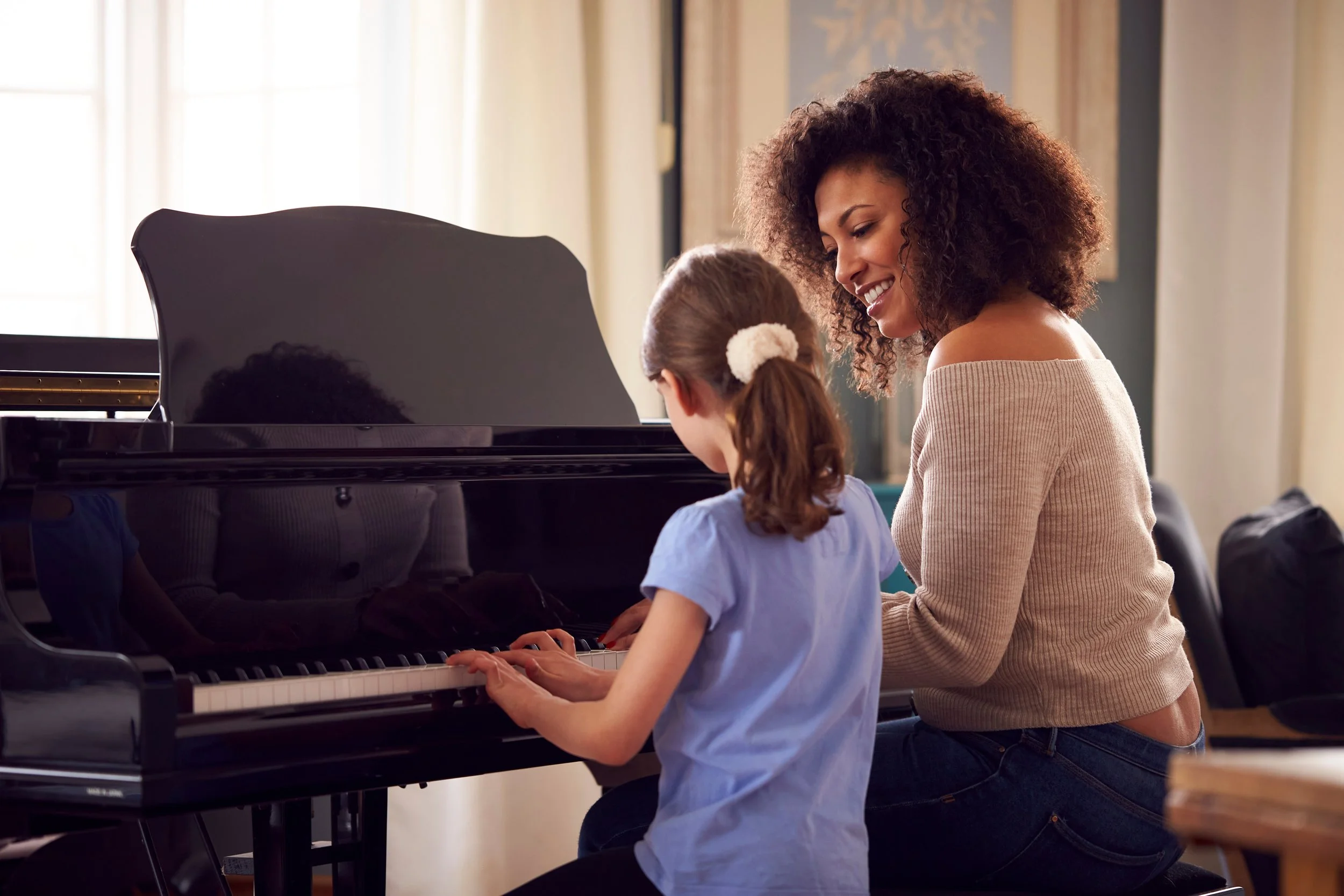The Parent’s Guide to Picking the Best Piano Teacher
The right piano instructor understands how your child learns, adapts piano lessons to their needs, and makes progress feel exciting. They combine musical knowledge, music theory, and patience with flexibility and the ability to connect with kids. More than teaching notes, a good Music Teacher guides students through challenges, celebrates achievements, and sparks a love for music that lasts.
Here’s how to find a teacher who will bring out the best in your child.
Step 1: Notice How Your Child Learns
Children take in information in different ways, and the teacher who connects best will match that learning style and learning capacity.
Visual learners like to see patterns and demonstrations. They may benefit from diagrams, sheet music, or watching a hand position before trying it themselves.
Auditory learners remember what they hear. They might repeat a melody after listening once or follow spoken directions easily.
Kinesthetic learners learn by doing. They may tap rhythms on the table, pace while practicing, or need to place their hands on the keys of an acoustic piano or digital piano to understand.
Noticing these tendencies at home, whether your child responds better to being shown, told, or allowed to try, helps you choose a teacher who will communicate in ways that feel natural to them, incorporating traditional methods with real-world application.
Step 2: Look for Everyday Teaching Qualities
Good piano tutors share qualities that show up in small, everyday moments during lessons.
Patience shows when a teacher gives a child time to master a skill instead of rushing ahead.
Experience with children is clear when they simplify a tricky idea, like clapping out rhythm, ear training or using a story to explain hand position.
Enthusiasm keeps students motivated, as teachers who celebrate small wins spark excitement to keep practicing and giving performance opportunities.
Flexibility matters too; a strong teacher can shift from scales to a favorite song to make a concept click.
These details tell you far more than a teacher’s resume ever could.
Step 3: Notice the Connection
Skills matter, but the relationship often makes the biggest difference. A supportive teacher creates an atmosphere where children are not afraid to make mistakes and feel encouraged to try again.
During a consultation, notice whether the teacher celebrates effort, explains patiently when a concept is tough, and adjusts the pace to match your child’s comfort. When a child leaves feeling proud of what they attempted, even if they are still learning the basics in group lessons or private lessons, that’s a sign of a strong teacher-student connection.
Step 4: Ask Practical Questions
When meeting a potential teacher, focus on how they approach real-life situations, not just their background. Questions like:
How do you adjust lesson plans for different learning styles?
What do you do if a student loses focus?
How do you encourage practice time at home?
The answers will give you insight into whether the teacher’s methods match what your child needs, whether it’s in-studio piano lessons, online piano lessons, or collaborative music in group piano sessions.
Step 5: Take Advantage of a Consultation
Before beginning lessons, many programs, such as Play the Art Music Academy, offer free consultations.
A consultation is an opportunity to see how a teacher connects with your child. It’s the time to share how your child learns, ask practical questions about the teacher’s approach, and watch how they communicate. The goal isn’t just to assess skills, but to decide whether their style will make your child feel comfortable, supported, and eager to learn.
Step 6: Support Practice at Home
The teacher guides each lesson, but real progress grows from what happens at home. A quiet, consistent place to practice and a simple routine give children structure.
Encouragement from you, asking them to play a piece they’ve learned as a piano performance, noticing improvements, or celebrating effort, reinforces the habit and shows that their practice holds value.
Step 7: Think Long Term
A piano teacher does more than guide students through scales and songs. The right teacher helps children develop focus, patience, and resilience, skills that stay with them far beyond the music room. Long-term music training also supports cognitive function, brain development, and improved academic performance, proving the lifelong benefits of music education.
At Play the Art Music Academy, we see this every day. When students connect with the right teacher, they grow not only as musicians but also in confidence and creativity that support them in school, friendships, and life. Our music teachers offer individualized instruction and personalized piano lessons tailored to your child's needs.
A Final Note for Parents
Trust your instincts. You know when your child feels comfortable, supported, and inspired. When the connection is right, music lessons become more than just piano practice, they become a path toward growth, confidence, and a lifelong love of music.

